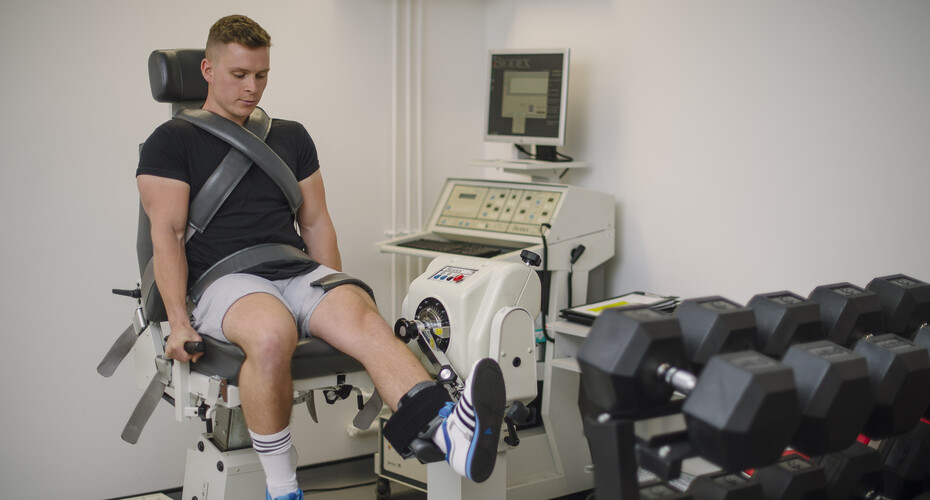Developing countermeasures for injury- and critical illness-induced deconditioning
Our research
Background: Preserving muscle mass during critical illness or injury
Knowledge of the mechanisms of skeletal muscle atrophy and insulin resistance across the life course can also be used to develop targeted interventions to preserve muscle mass and health during disuse and, importantly, critical illness.
Can electrical stimulation prevent muscle wasting?
Neuromuscular electrical stimulation (NMES) can evoke involuntary muscle contractions, and when applied locally to quadriceps muscles can stimulate muscle protein accretion and prevent muscle wasting. However, whether the effects of NMES applied to single muscles or muscle groups are also observed when NMES is applied on a whole-body level, and if this translates to clinical benefits, is uninvestigated.
Although work in healthy populations suggests positive effects of whole-body NMES on muscle mass and cardiometabolic health, it has not been developed for application in critically ill patients. Moreover, while NMES can stimulate whole-body glucose disposal, it remains to be established if this occurs in muscle, and particularly in ICU patients.
Additional factors that need determining are:
- the optimal protocol (i.e. low or high frequency, to minimise fatigue but maximise MPB and muscle glucose balance (MGB),
- on which days of ICU stay it should be performed (depending on the onset of muscle protein loss),
- and how often (determined by how long-lasting the effect is) it needs to be applied to improve clinical outcomes.
Current projects
NMES: Understanding the role of muscle protein balance and insulin resistance in ICU-induced muscle wasting, and their reversal with electrical stimulation
FESCE: Muscle glycogen metabolism is rapidly dysregulated in critical illness and may contribute ICU acquired weakness
NG: The impact of enteral versus oral protein feeding on muscle protein synthesis in healthy young males and females
STORMM: Study of Ocean Rowing Muscle Metabolism. Physiological and metabolic responses in ocean rowing.
STOMPE: Study of Metabolism in Polar Environment: finding the limit to energy intake.
TREE: Is ultrasound a valid measure of muscle quality?




